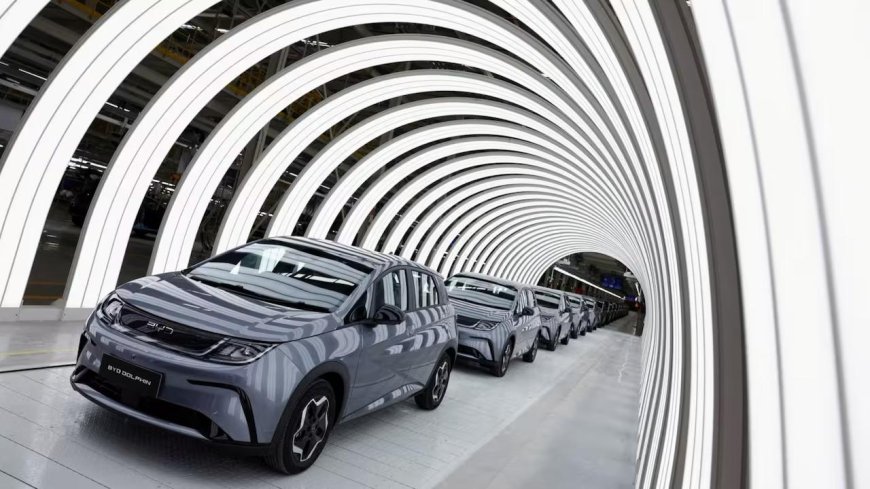Pakistan to Get First-Ever New Energy Vehicle Assembly Plant
Pakistan takes a major step toward electric mobility with its first NEV assembly plant launching in Karachi under Capital Smart Motors.

In a landmark development for Pakistan’s auto industry, Capital Smart Motors (CSM) has announced the establishment of the country’s first-ever New Energy Vehicle (NEV) assembly plant, marking a major step toward clean and locally assembled mobility.
According to company officials, the new plant will initially operate under a completely knocked-down (CKD) setup to assemble imported vehicle kits, before transitioning to full local assembly within two years. The facility, located near Port Qasim in Karachi, will produce a range of electric and hybrid vehicles designed for Pakistan’s growing middle-class and commercial fleet markets.
“This is more than just an auto project it’s the start of a new industrial ecosystem focused on electric mobility and sustainable energy,” said Ahmed Bilal, spokesperson for Capital Smart Motors. “We aim to bring global-standard vehicles to Pakistan, assembled with local expertise and long-term employment opportunities.”
Key Details of the Project
-
Location: Karachi, Sindh (industrial belt near Port Qasim)
-
Investment: Estimated USD 100 million in Phase 1
-
Initial Capacity: Around 10,000 units per year, scalable up to 25,000 units by 2028
-
Employment: Over 1,800 direct jobs expected in production, logistics, and technical services
-
Technology Partners: Multiple Chinese and Southeast Asian EV manufacturers including Riddara, Zeekr, Forthing, and JMEV
The NEV plant will assemble battery-electric (BEV) and range-extended hybrid models, offering an alternative to Pakistan’s fuel-dependent transport sector. The vehicles are expected to be priced between Rs 4 million and Rs 9 million, making them competitive with locally produced petrol sedans and SUVs.
Government & Policy Support
The project aligns with Pakistan’s National Electric Vehicle Policy 2025-30, which aims for 30% of new vehicle sales to come from EVs and NEVs by 2030. The government is also offering tax incentives, reduced import duties on EV components, and subsidized electricity tariffs for charging infrastructure.
A senior official from the Ministry of Industries and Production confirmed that the plant proposal had been reviewed by the Special Investment Facilitation Council (SIFC) and approved under Pakistan’s green-industry framework. “Projects like this will help reduce oil imports, create skilled jobs, and position Pakistan as a participant in Asia’s electric-vehicle supply chain,” the official said.
Economic & Environmental Impact
Industry analysts estimate that successful implementation of local NEV assembly could save up to $1.2 billion annually in fuel imports by 2030, while reducing carbon emissions by 8–10% in the transport sector. Local production would also encourage the creation of battery recycling units and charging-station networks, driving related industries forward.
Economist Dr. Naila Farooq notes that this transition could help stabilize Pakistan’s trade deficit. “Electric mobility isn’t just about going green it’s about reducing our energy vulnerability. If the project achieves even half of its goals, it will be a defining milestone for industrial diversification.”
The Road Ahead
While optimism runs high, experts warn that infrastructure readiness remains the biggest challenge. Pakistan currently has fewer than 1,000 public charging points, and battery imports remain costly. CSM officials say they are in talks with private investors to set up fast-charging stations along major highways by late 2026.
The company expects pilot production to begin in mid-2026, with retail sales targeted for the first quarter of 2027.
If successful, this initiative could pave the way for a full-scale NEV manufacturing ecosystem positioning Pakistan as a regional player in sustainable automotive technology making them competitive with locally produced petrol sedans and SUVs.
For more latest updates, visit Nation bytes

 Israr Ahmed
Israr Ahmed